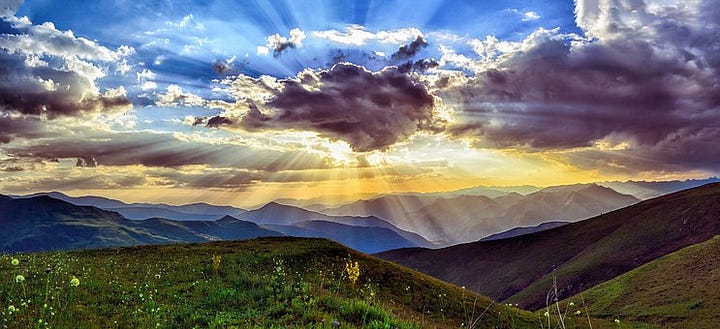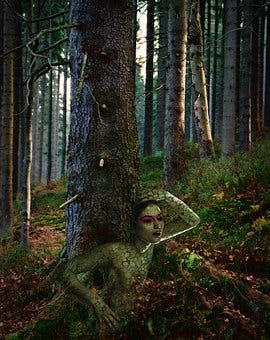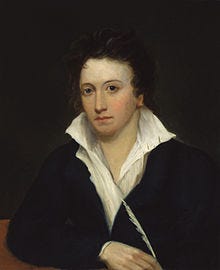
Readers of my previous articles will know that I am a fan of Plato, especially his allegory of the cave.
I am indebted to Jack Preston King (in Medium articles) for introducing me to two books:
- Natural Supernaturalism: Tradition and Revolution in Romantic Literature, by M. H. Abrams¹
- Towards an Animistic Science of the Earth, by Stephan Harding²
The first is a brilliant account of the Romantic poets, playwrights and philosophers, their passionate and campaigning spirituality, which was a powerful counterbalance to contemporary developments in materialist science, and the philosophy of the so-called ‘Enlightenment’³. Here is a relevant quote: “Philosophers such as Fichte, Schelling, and Hegel, imaginative writers from Blake and Wordsworth to Shelley and the young Carlyle in England, and Hölderlin and Novalis in Germany, as well as others who, like Schiller and Coleridge, were equally metaphysicians and bards, conceived themselves as elected spokesmen for the Western tradition at a time of profound cultural crisis. They represented themselves in the traditional persona of the philosopher-seer or the poet-prophet, and they set out, in various yet recognisably parallel ways, to reconstitute the grounds of hope and to announce the certainty, or at least the possibility, of a rebirth in which a renewed mankind will inhabit a renovated earth where he will find himself thoroughly at home” (p12). We are surely still in need of that revolution now!

The second book points to an old ‘pagan’ way of looking at the world, but in modern times a scientific heresy, namely animism. According to the spiritual traditions to which I subscribe the universe is a living being, there is no such thing as inorganic matter, everything is alive. Animism is therefore the philosophical term which best describes this worldview. A return to animism, as advocated by Jack Preston King⁴, may therefore be essential in this new Romantic revolution.

I was excited, therefore, when I came across a passage this afternoon which brings Plato, the Romantics and Animism together. This is from the scholar Kathleen Raine’s introduction to her selection of the poetry of Shelley⁵:
“We find in Shelley’s poetry not only Plato’s philosophy but his theology likewise. Shelley’s ‘spirit of Earth’ is Plato’s immortal and happy ‘god’, guardian-spirit of the single life of the planet as a whole, in which all creatures, from the elemental to the animate, and man himself, participate… For Shelley all things are spiritually animate: there are informing and guardian-spirits of cloud and river, of all living things; and the human mind itself is visited by impulses, thoughts and intuitions which may truly be called spiritual guides and guardians since they do not originate in the mind of any poor human individual, but belong to some greater order which sustains us in body and soul…
“Shelley doubtless strongly felt this objection that Christian theology, by placing God outside his creation, has deprived ‘nature’ of spiritual life, and prepared the way for that scientific secularisation and profanation of the universe from whose deadly results we now suffer. For the Platonic theology, all things have within and above them a spiritual dimension, a ‘soul’; and are, in their various degrees, under the protection of the mundane and supermundane gods. For Shelley, as for Blake, ‘everything that lives is holy’ ”.
Perhaps poets do indeed know better than scientists!³
==============================================================================================
Footnotes:
1. The Norton Library, 1973
2. This is an e-book, available free online.
3. In the past I have written some articles under the general heading of Poets Know Better Than Scientists. For links to them, see under Science in the Blog Index..
4. Check out Jack’s article, click here.
5. Shelley, selected by Kathleen Raine, Penguin, 1973, p13